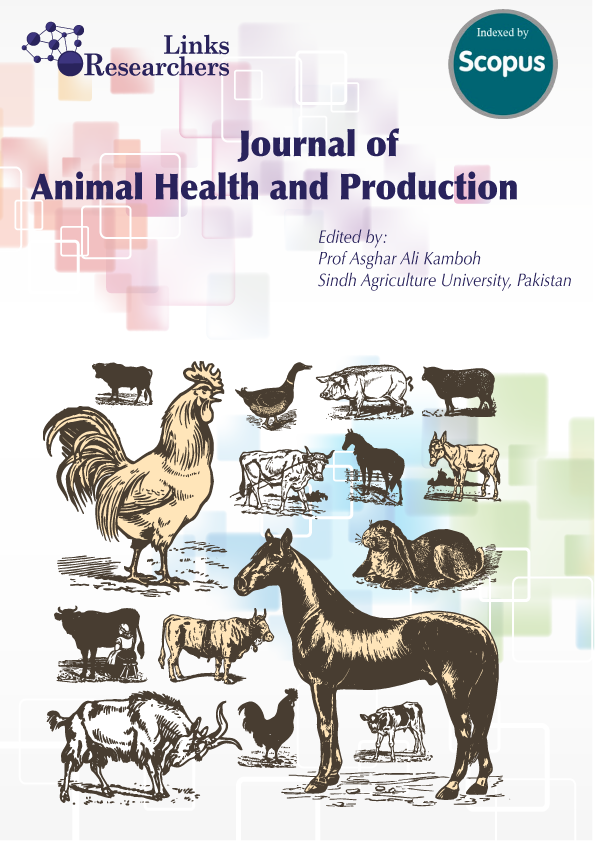Enhancing Broiler Chick Growth with Locally Produced Thermostable Cellulase in Fibrous Diets
Enhancing Broiler Chick Growth with Locally Produced Thermostable Cellulase in Fibrous Diets
Aisha Khalid1,2, Roheela Yasmeen1*, Farah Ahmad1, Mudassar Aslam2, Muhammad Tayyab2
ABSTRACT
Cellulase has been utilized in poultry plant-based diets to enhance nutritional value by neutralizing anti-nutritional factors. This study investigated the effects of a recombinant thermostable cellulase from Thermotoga naphthophila (CELTN) on the growth performance of broiler chicks when added to corn-based feed. The thermostable cellulase was produced using BL21 CodonPlus cells with the pET28a-Cellu vector under optimized conditions. A total of 150 one-day-old, unsexed broiler chicks were divided into five treatment groups, each further subdivided into three replicates of 10 chicks with an initial average weight of 39 grams. Group A served as the negative control with a non-enzyme supplemented diet, while Group E was the positive control, receiving a diet supplemented with 500 IU of commercial neutral cellulase. Groups B, C, and D received diets supplemented with locally produced recombinant thermostable cellulase at concentrations of 500, 750, and 1000 IU/kg, respectively. The results, analyzed using ANOVA and Duncan’s Multiple Range Test, showed significant improvements (P < 0.05) in weight gain, feed intake, and feed efficiency ratio for enzyme-treated groups, particularly from the 3rd to 7th week of the trial. Group D, with 1000 IU of the local cellulase, demonstrated the most significant effects, with a weight gain of 3460.11 grams, feed intake of 6332.40 grams, and a feed conversion ratio (FCR) of 1.83. These results indicate that the inclusion of locally produced thermostable cellulase up to 1000 IU/kg in broiler feed significantly enhances growth performance (P < 0.05). This pilot study suggests that CELTN is a viable candidate for the poultry feed industry and could improve economic efficiency by reducing reliance on imported enzymes.
To share on other social networks, click on any share button. What are these?





